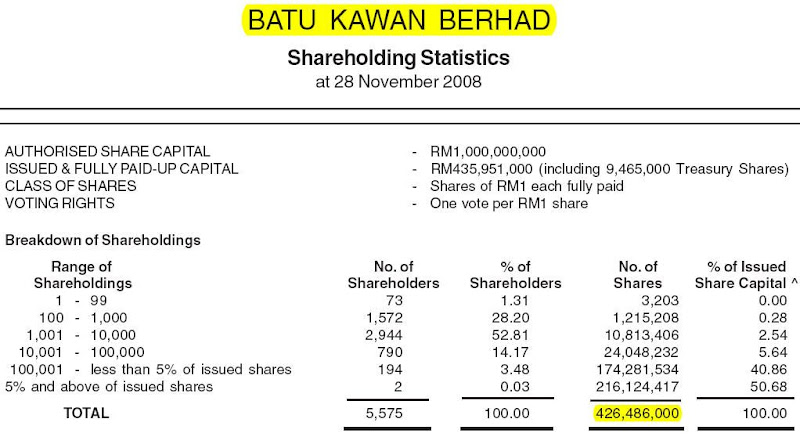A fund’s price is determined by the underlying asset’s closing market price divide by total number of units of that fund on that particular day. This is the equation:
Fund’s Unit Price = Underlying Asset’s Closing Market Price / Total Units in the fund.
From the above equation, the fluctuation in a Fund’s Unit Price depends on the Underlying Assets, and it doesn’t depend on the fund’s Unit Price. After all, a fund’s unit price depends on “how many slices the fund is sliced”. The more units sliced, the fund’s unit price will be lower.
In fact, if both funds have the same Assets in the same proportion, both funds will fluctuate in the exact percentage, irrespective of the number of units in the fund. Putting it in a laymen way, if Fund A with unit price of RM 0.20 per unit increased by RM 0.10, then fund B with unit price of RM 1.00 per unit will increase by RM 0.50 (and NOT RM 0.10)!, if both funds have the same underlying assets at the same proportion. Both funds will increase by the same percentage, and not by the same amount!.
How about in reality (as oppose to the above “theory”)? Let’s take a look at 2 funds from one of the unit trust companies in Malaysia.
Fund A’s unit price is RM 0.4042 on 2nd Oct 2006, while Fund B’s unit price is only RM 0.2156. If a person wants an “aggressive” fund (fund which fluctuates in prices a lot), does it mean that Fund B is better? Or does it mean that fund B have more potential for higher return simply because the fund price is lower? Let’s take a look at their month by month’s prices from 2nd Oct 2006 until 1st Oct 2009 below:
Fund A (the fund that have a unit price almost double of Fund B) have (in terms of percentage):
a) Higher Return
b) Higher advancement from the lowest price to the highest.
c) Higher changes in a month
In conclusion, a fund’s unit price does not tell whether the fund is a volatile fund, better potential for higher returns or it’s an undervalued fund.
A much better way to measure a fund’s volatility (fluctuation in unit prices) is looking at:
- Fund’s Asset Allocation (percent in Equities, Bonds, and Money Market).
- Funds that invest mainly in Equities will fluctuate more than funds that invest mainly in Bonds.
- Funds that invest mainly in Bonds will fluctuate more than funds that invest mainly in Money Market.
- In fact, more than 90% of the long term return can be attributed by Asset Allocation. - Fund’s objective/ restrictions or sub-category of the Assets Class.
- Funds that invest in overseas will fluctuate more than funds that invest locally (due to currency exchange fluctuation)
- Funds that invest in high dividend paying stocks will fluctuate less than funds that invest in low dividend paying stocks (like growth stocks).
- Funds that invest in a specific sector/ group will fluctuate more than funds that are well diversified (no particular concentration on any sector/ group).
- Though these factors do determine the fund’s fluctuation, but it doesn’t play a big role like (1) above.
Luckily for laymen, FMUTM did a good job to make it compulsory for all unit trust funds that have 3 years track record to publish their fund’s volatily. Read their full article here: http://fmutm.com.my/doc/BrochureinvestorMay09.pdf .
Anyone still thinks Berkshire Hathaway class A at USD 100,000 per share is “expensive” when compared to a “cheap” share of USD 1 per share?
More often than not, it’s the other way round!.
















